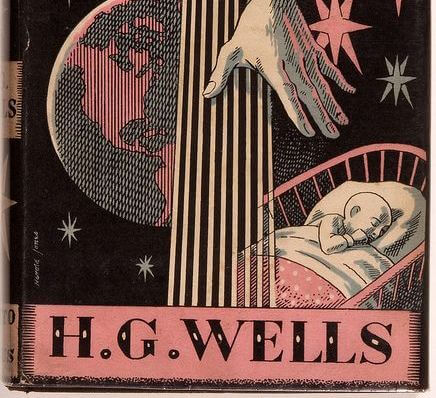The 30 Most Inaccurate Statements in History

It’s strange that there are so many people in the world that are afraid of being wrong. It’s strange because, really, the history of humanity is nothing more than a one error after another. Everyone is prone to being wrong. Even the experts, geniuses, and hustlers that made history have made huge mistakes. They have made inaccurate statements that in hindsight are almost funny.
To demonstrate this, below are thirty inaccurate statements and predictions that seemed self-evident when they were made. But over time, they’re been shown to be huge miscalculations.
“Heavier-than air flying machines are impossible.” Lord Kelvin, British mathematician and physicist, 1895.
“A rocket will never be able to leave the Earth’s atmosphere.” New York Times, 1936.
“Everything that can be invented has been invented.” Charles Duell, commissioner of the United State’s Office of Patents, 1899.
“The horse is here to stay, but the automobile is only a novelty — a fad.” Statement made by the president of Michigan Savings Bank, advising Henry Ford’s lawyer not to invest in Ford Motor.
“Television won’t last. It’s a flash in the pan.” Mary Somerville, educational radio pioneer in the United States, 1948.
“Television won’t be able to hold on to any market it captures after the first six months. People will soon get tired of staring at a plywood box every night.”
Darryl Zanuck, producer for 20th Century Fox, 1946.
“The wireless music box has no imaginable commercial value. Who would pay for a message sent to nobody in particular?” Associates of David Sarnoff, in response to the suggestion of investing in the radio in 1921.
Inaccurate Statements in History: The Earth’s Movement and Impossibly Fast Travel
“Rail travel at high speed is not possible because passengers, unable to breathe, would die of asphyxia.” Dr. Dionysus Larder, Professor of Natural Philosophy and Astronomy at the University of London, 1793-1859.

“I can accept the theory of relativity as little as I can accept the existence of atoms and other such dogmas.” Ernst Mach, professor of Physics at the University of Vienna.
“The energy produced by the breaking down of the atom is a very poor kind of thing. Anyone who expects a source of power from the transformation of these atoms is taking moonshine.” Ernest Rutherford, discoverer of the nucleus of the atom and winner of the Nobel Prize in Chemistry.
“Heaven and Earth… were created… at the same instant… on October 23rd, 4,004 B.C., at nine o’clock in the morning.” John Lightfoot, vice-chancellor of the University of Cambridge, shortly before the publication of The Origin of Species.
“Animals that move have limbs and muscles. The earth doesn’t have limbs nor muscles, therefore, it doesn’t move.” Scipione Chiaramonti, father of Pope Pius VII.
“We don’t like their sound. Groups of guitars are on their way out.”
-Decca Recording Company, when they rejected signing a contract with the Beatles in 1962.

“This ‘telephone’ has too many shortcomings to be seriously considered as a means of communication. The device is inherently of no value to us.” William Orton, in a Western Union internal memo, 1876.
“Reagan doesn’t have that presidential look.” Executive of United Artists, after rejecting Reagan for the leading role in the movie The Best Man, in 1964.
Bad tech predictions
“I think that there is a world market for maybe five computers.” Thomas Watson, president of IBM, 1943.
“X-rays will prove to be a hoax.” Lord Kelvin, President of the Royal Society, 1883.
“[When the world becomes] acquainted with the subject [they] will recognize [it] as a conspicuous failure.” Henry Morton, President of the Stevens Institute of Technology, regarding Edison’s light bulb, 1880.
“No one is going to pay good money to go from Berlin to Potsdam in an hour, when they can get there in a day riding horseback for free.” King Guillermo I of Prussia, regarding trains, 1864.
“There is no reason for any individual to have a computer in his home.” Ken Olson, president and founder of Digital Equipment Corporation (DEC), talking with the World Future Society, Boston, 1977.
“If excessive smoking actually plays a role in the production of lung cancer, it seems to be a minor one.” HC Heuper, National Institute of Cancer, 1954.
“No, it will make war impossible.” Hiram Maxim, inventor of the machine gun, in response to English scientist Havelock Ellis’s question. “Won’t this weapon make war more terrible?” 1893.

Inaccurate Statements in History: Computers and Rock ‘n’ Roll
“There will never be a bigger plane built.” A Boeing engineer, after the 247’s first flight, a bi-motor airplane capable of transporting ten people.
“What, sir, would you make a ship sail against the wind and currents by lighting a bonfire under her deck? I pray you, excuse me, I have not the time to listen to such nonsense.” Napoleon Bonaparte, when told of Robert Fulton’s steam ship, 1800.
“The idea that cavalry will be replaced by these iron coaches is absurd. It is little short of treasonous.” Comment by Aide-de-camp to Field Marshal Haig, at a tank demonstration in 1916.
“The potential world market for photocopiers consists of 5,000 at maximum.” IBM, to the founders of Xerox, arguing that photocopiers wouldn’t have a large enough market to justify production, 1959.
“United States citizens need phones, but we don’t. We have plenty of messengers.” Sir William Preece, Chief Engineer at the British post office, 1878.
“It will be gone by June.” Variety Magazine about rock’ ‘n’ roll, 1955.
“When the Exposition of Paris (in 1878) closes, electric lights will close with it and no more will be heard of [electric lights].” Erasmus Wilson, professor at Oxford.

It’s strange that there are so many people in the world that are afraid of being wrong. It’s strange because, really, the history of humanity is nothing more than a one error after another. Everyone is prone to being wrong. Even the experts, geniuses, and hustlers that made history have made huge mistakes. They have made inaccurate statements that in hindsight are almost funny.
To demonstrate this, below are thirty inaccurate statements and predictions that seemed self-evident when they were made. But over time, they’re been shown to be huge miscalculations.
“Heavier-than air flying machines are impossible.” Lord Kelvin, British mathematician and physicist, 1895.
“A rocket will never be able to leave the Earth’s atmosphere.” New York Times, 1936.
“Everything that can be invented has been invented.” Charles Duell, commissioner of the United State’s Office of Patents, 1899.
“The horse is here to stay, but the automobile is only a novelty — a fad.” Statement made by the president of Michigan Savings Bank, advising Henry Ford’s lawyer not to invest in Ford Motor.
“Television won’t last. It’s a flash in the pan.” Mary Somerville, educational radio pioneer in the United States, 1948.
“Television won’t be able to hold on to any market it captures after the first six months. People will soon get tired of staring at a plywood box every night.”
Darryl Zanuck, producer for 20th Century Fox, 1946.
“The wireless music box has no imaginable commercial value. Who would pay for a message sent to nobody in particular?” Associates of David Sarnoff, in response to the suggestion of investing in the radio in 1921.
Inaccurate Statements in History: The Earth’s Movement and Impossibly Fast Travel
“Rail travel at high speed is not possible because passengers, unable to breathe, would die of asphyxia.” Dr. Dionysus Larder, Professor of Natural Philosophy and Astronomy at the University of London, 1793-1859.

“I can accept the theory of relativity as little as I can accept the existence of atoms and other such dogmas.” Ernst Mach, professor of Physics at the University of Vienna.
“The energy produced by the breaking down of the atom is a very poor kind of thing. Anyone who expects a source of power from the transformation of these atoms is taking moonshine.” Ernest Rutherford, discoverer of the nucleus of the atom and winner of the Nobel Prize in Chemistry.
“Heaven and Earth… were created… at the same instant… on October 23rd, 4,004 B.C., at nine o’clock in the morning.” John Lightfoot, vice-chancellor of the University of Cambridge, shortly before the publication of The Origin of Species.
“Animals that move have limbs and muscles. The earth doesn’t have limbs nor muscles, therefore, it doesn’t move.” Scipione Chiaramonti, father of Pope Pius VII.
“We don’t like their sound. Groups of guitars are on their way out.”
-Decca Recording Company, when they rejected signing a contract with the Beatles in 1962.

“This ‘telephone’ has too many shortcomings to be seriously considered as a means of communication. The device is inherently of no value to us.” William Orton, in a Western Union internal memo, 1876.
“Reagan doesn’t have that presidential look.” Executive of United Artists, after rejecting Reagan for the leading role in the movie The Best Man, in 1964.
Bad tech predictions
“I think that there is a world market for maybe five computers.” Thomas Watson, president of IBM, 1943.
“X-rays will prove to be a hoax.” Lord Kelvin, President of the Royal Society, 1883.
“[When the world becomes] acquainted with the subject [they] will recognize [it] as a conspicuous failure.” Henry Morton, President of the Stevens Institute of Technology, regarding Edison’s light bulb, 1880.
“No one is going to pay good money to go from Berlin to Potsdam in an hour, when they can get there in a day riding horseback for free.” King Guillermo I of Prussia, regarding trains, 1864.
“There is no reason for any individual to have a computer in his home.” Ken Olson, president and founder of Digital Equipment Corporation (DEC), talking with the World Future Society, Boston, 1977.
“If excessive smoking actually plays a role in the production of lung cancer, it seems to be a minor one.” HC Heuper, National Institute of Cancer, 1954.
“No, it will make war impossible.” Hiram Maxim, inventor of the machine gun, in response to English scientist Havelock Ellis’s question. “Won’t this weapon make war more terrible?” 1893.

Inaccurate Statements in History: Computers and Rock ‘n’ Roll
“There will never be a bigger plane built.” A Boeing engineer, after the 247’s first flight, a bi-motor airplane capable of transporting ten people.
“What, sir, would you make a ship sail against the wind and currents by lighting a bonfire under her deck? I pray you, excuse me, I have not the time to listen to such nonsense.” Napoleon Bonaparte, when told of Robert Fulton’s steam ship, 1800.
“The idea that cavalry will be replaced by these iron coaches is absurd. It is little short of treasonous.” Comment by Aide-de-camp to Field Marshal Haig, at a tank demonstration in 1916.
“The potential world market for photocopiers consists of 5,000 at maximum.” IBM, to the founders of Xerox, arguing that photocopiers wouldn’t have a large enough market to justify production, 1959.
“United States citizens need phones, but we don’t. We have plenty of messengers.” Sir William Preece, Chief Engineer at the British post office, 1878.
“It will be gone by June.” Variety Magazine about rock’ ‘n’ roll, 1955.
“When the Exposition of Paris (in 1878) closes, electric lights will close with it and no more will be heard of [electric lights].” Erasmus Wilson, professor at Oxford.

This text is provided for informational purposes only and does not replace consultation with a professional. If in doubt, consult your specialist.







